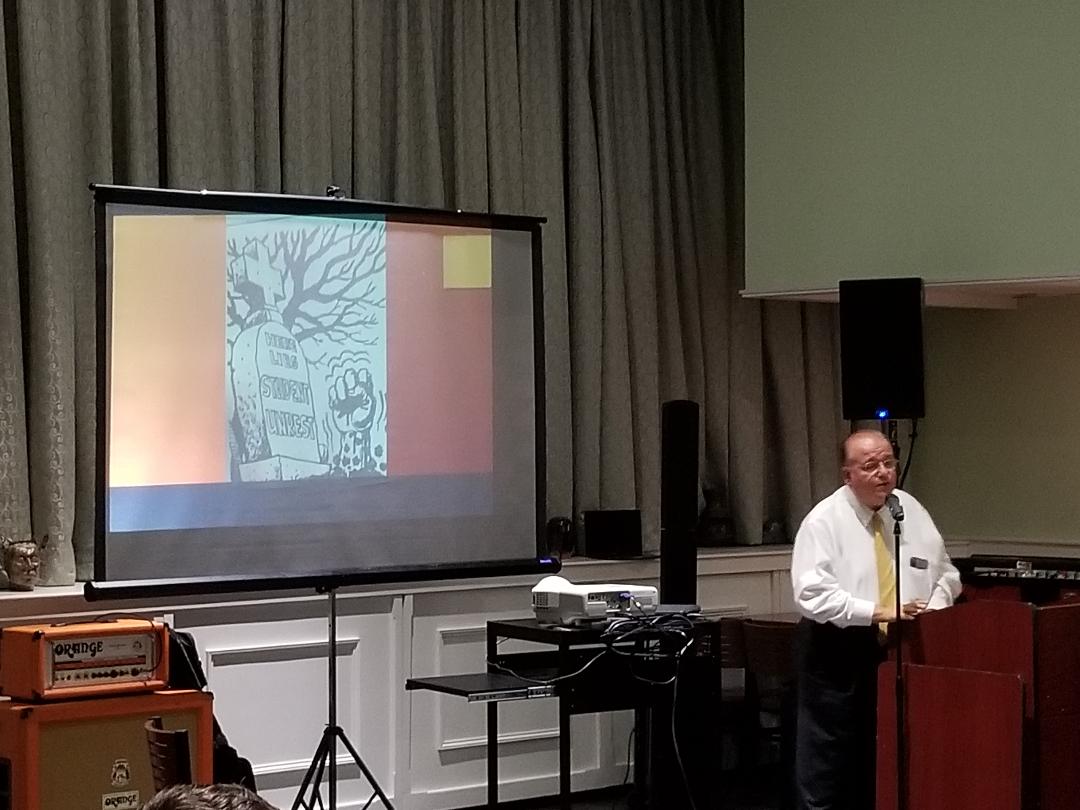Two candidates vying to represent the 16th Senate District — including Flushing — debated on tuition costs in higher education, during a forum hosted by the New York Public Interest Research Group.
State Sen. Toby Stavisky (D-Whitestone) and Republican candidate J.D. Kim visited Queens College’s Rosenthal Library on Oct. 23 to discuss their goals for the district and college education.
The event began by spotlighting the greatest issue facing higher education: the national student debt, which has exceeded $1 trillion.
Kim — an attorney from Flushing — admitted that his limited knowledge on higher education was quite limited, but like many others, he is at the mercy of paying back student loans.
“Believe me, I feel the burden all the time with my own debt, so that is a definite issue,” Kim said.
Stavisky has held her Senate seat since 1999 and is running for re-election in the re-configured district and had much to say on the matter. She has a shared graduate career at both QC and Hunter College, and believes keeping tuition affordable is a pressing issue looming over CUNY.
“At one time, there was no tuition at CUNY. In fact, it was not that long ago that tuition became an issue,” she said. “Affordability and accessibility are the most important ingredients.”
Stavisky mentioned the NYSUNY 2020 legislation and CUNY’s “rational tuition plan.” This legislation raises tuition $300 per year for five years. Its goal is to ensure families are prepared for tuition increases yearly, rather than unforeseen spikes that commonly strike the pockets of students, forcing them to take out more loans.
“It’s an attempt to expand on public-private partnerships and that, to me, is crucial,” Stavisky said. “Because government is spending less and less, the state contribution has been going down substantially, so we have to look to businesses to help cover the cost. That’s the real purpose.”
Public-private partnerships were next on the forum list and its role in jeopardizing academic integrity. According to NYPIRG, the public-private partnership proposed in NYSUNY 2020 is a Republican-fueled partnership created in response to an economic downturn in need of more private investments.
“This fits in with the Republican philosophy,” Kim said. “Rather than collecting taxes and dispersing it to colleges, private institutions directly form partnerships — a model that if done right, everybody can apply and work toward.”
Stavisky supported this notion of partnerships as well; emphasizing the idea of school presidents being chosen based only on the smartest faculty member was pretty insufficient.
However, even though college presidents are now picked based on their ability for monetary gain in the university’s interest, state funding has decreased.
CUNY Chancellor Matthew Goldstein and the president of Baruch College, Mitchell B. Wallerstein, have raised a lot of funding, while state funding has been decreasing.
Stavisky went on to accredit the many academic financial feats the Senate has accomplished for New York institutions.
“For the first time, the budget passed in April, ensured that we did not have any cuts in higher education. Secondly, we increased state gain to community colleges by $150 per full-time student,” Stavisky said.
Restoring the tuition assistance program was also a highlight of the forum. As tuition for graduate students has gone up, so has the likelihood for students to fend for themselves due to the lack of financial assistance.
“The answer is very simple,” Kim said. “With the economy going, getting the money for grants and scholarships is a bit more complicated.”
Stavisky offered a similar response.
“As the economy improves, tax revenue will come in and hopefully the budget will be directed to higher education,” she said.













